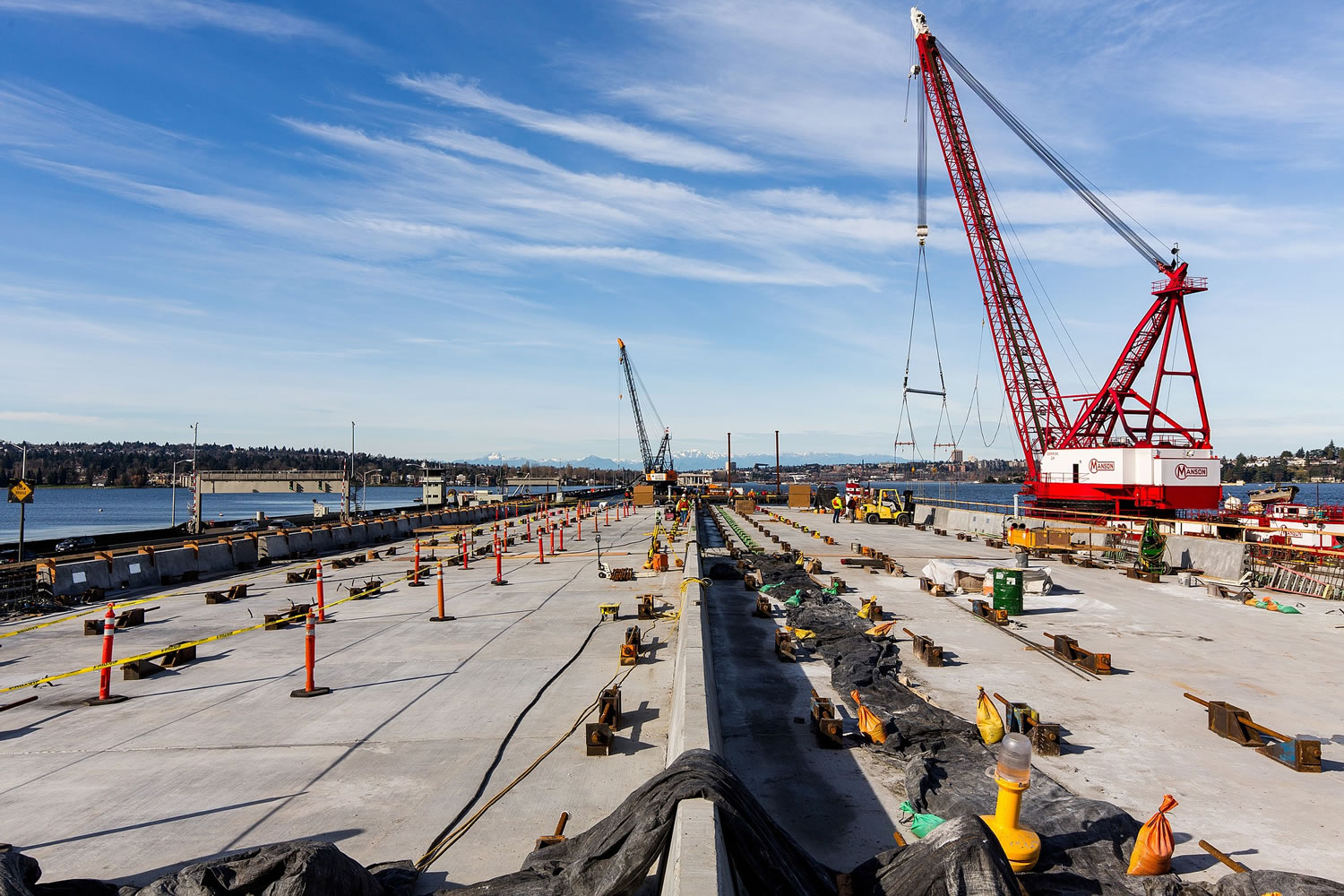Local Angle
Previous funding packages transformed Clark County transportation
SPOKANE — Washington state saw the largest percentage increase of total highway spending in the nation in recent years, but lawmakers are still considering a $15 billion tax increase plan for road improvement projects.
Total highway spending in Washington rose 183.6 percent in the period from 2003-2013, up $4.2 billion. It was the sharpest increase among the states, and well above the national average of a 43.5 percent increase, according to figures reviewed by The Associated Press. In 2013, total highway spending in Washington was $6.5 billion. Only six states had a bigger total spending figure that year – including California ($16 billion) and Texas ($15 billion.)
The big bump was thanks to the legislative passage of state gas tax increases totaling 14.5 cents in 2003 and 2005, said Robin Rettew, a transportation budget analyst for the state Office of Financial Management.
“We were the envy of the rest of the country,” she said.
The increase led to new highway projects that now must be maintained and preserved, which puts Washington in a common position with many other states, she said.
“Everybody is crying for more funds for our broken infrastructure,” Rettew said. “We are no different.”
The proposed transportation package includes a gas tax hike of nearly 12 cents a gallon over the next three years to provide money for projects such as improvements for Interstate 90 through Snoqualmie Pass, and completion of the North-South Freeway in Spokane, and to address a backlog of other projects.
Previously, critics of raising the gas tax in Washington have said the state should more efficiently spend the money it already allocates, and they point to the troubled, multibillion-dollar projects to replace Seattle’s Alaskan Way Viaduct and the 520 floating bridge over Lake Washington as examples of poor oversight.
Across the nation legislators and governors are trying to confront an aging network of roads, highways and bridges during an era in which federal money for such projects has remained stagnant or declined.
Figures reviewed by AP show the total amount of money available to states from the Federal Highway Trust Fund has declined 3.5 percent during the five-year period ending in 2013, the latest year for which numbers were available.
About 20 percent of the nation’s interstates and major roads are in need of resurfacing or reconstruction, according to federal data analyzed by the American Road & Transportation Builders Association. A quarter of its 600,000 bridges are in such poor condition that they are rated as structurally deficient or are considered to be functionally obsolete because they have narrow lanes or other features not designed for today’s traffic.
Washington’s rate of increase in total highway spending slowed when considering the five-year period from 2008-2013, the AP review found. Total state highway spending grew 66 percent in that period, compared to a national average of about 12 percent. It was the fifth-highest rate of increase.
In terms of highway spending by state from the Federal Highway Trust Fund, Washington grew 28 percent in the period from 2003-2013, compared to a national average of 33 percent.
The state’s federal highway funding dropped nearly 14 percent from 2008 to 2013, compared to a national average drop of nearly 4 percent.
In Olympia, Senate Transportation Committee chairman Sen. Curtis King, R-Yakima, introduced the transportation package at a recent news conference. Under the plan, the gas tax would increase in three stages: a 5 cent increase would take effect this summer, a 4.2 cent increase would follow next year, and then a final 2.5 cent increase would take effect the following year.
The plan also seeks to redirect sales-tax money from transportation projects to a transportation fund instead of the state’s general fund.
The Senate proposal puts more than $8 billion toward road projects, including money toward transit and local rail projects, as well as bike paths and pedestrian walkways. It also would allow Sound Transit to ask voters to fund potential expansions of its rail line.



